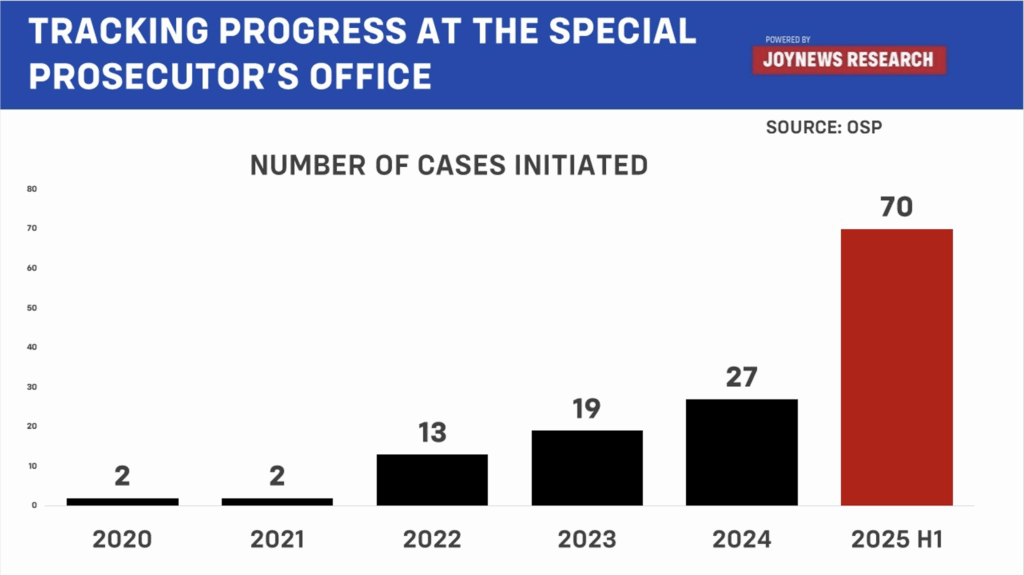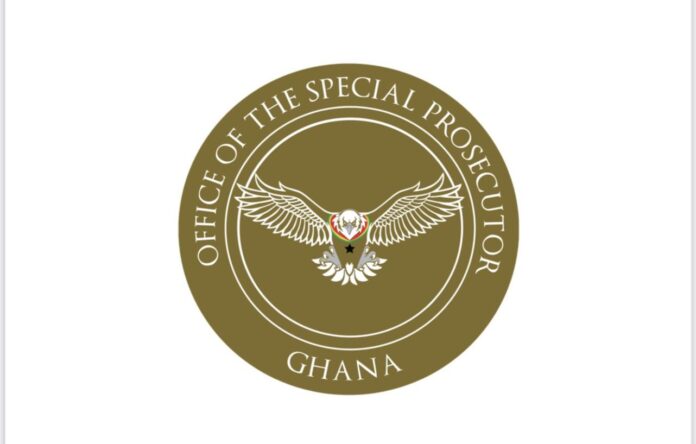The Office of the Special Prosecutor (OSP) has recorded its first convictions since its creation in 2018 under the Office of the Special Prosecutor Act, 2017 (Act 959).
After years of criticism for failing to deliver results, despite receiving over GH¢1 billion in budget allocations since inception, the OSP has now secured seven convictions. All were obtained through plea bargains.
The office was allocated GH¢146 million in the 2025 budget, but it remains early in the year, and it is unclear whether that amount will be fully disbursed.
It is also uncertain whether the cumulative GH¢1 billion approved since 2018 was ever entirely released by the Ministry of Finance.
Still, the convictions mark a milestone.
Six convictions involved payroll fraud uncovered in the Northern Region. The seventh relates to the trial of Charles Bissue, former secretary of the defunct Inter-Ministerial Committee on Illegal Mining. The second accused in that case has been convicted and is reportedly cooperating with prosecutors in the ongoing proceedings against Mr Bissue.
The OSP has been noticeably more active in the first half of 2025. It is currently investigating several high-profile cases, including former Finance Minister Ken Ofori-Atta, the controversial GRA–SML revenue assurance contract linked to former GRA Commissioner Rev Ammishaddai Owusu-Amoah, and the former NPA Chief Executive Dr Mustapha Abdul-Hamid.
The investigation into Charles Bissue is also ongoing.
These headline cases form part of a broader expansion. In the first half of 2025 alone, the OSP has opened 70 new investigations. This marks a sharp increase from previous years.

The office initiated only two cases each in 2020 and 2021. That figure rose to 13 in 2022, 19 in 2023, and 27 in 2024. The current surge brings the cumulative total to at least 133 cases since the OSP began operations.
The rise in enforcement activity comes at a time when Ghana’s Corruption Perceptions Index, measured by Transparency International, has shown little progress. After holding at a score of 43 for four years, Ghana fell to 42 in 2024.
The index runs from 0 to 100, with higher scores indicating lower perceived corruption. Ghana’s highest-ever score was 48 in 2014. The trend since then has been downward.

The OSP’s recent convictions are a step forward. The office has also recovered over GH¢4 million for the state. But for many Ghanaians, these early results will not be enough.
Without a conviction involving a top political figure, the public is unlikely to be convinced. For now, the OSP has shown that it can bring cases to a conclusion. The next challenge is proving that it can hold the powerful to account.
DISCLAIMER: The Views, Comments, Opinions, Contributions and Statements made by Readers and Contributors on this platform do not necessarily represent the views or policy of Multimedia Group Limited.
DISCLAIMER: The Views, Comments, Opinions, Contributions and Statements made by Readers and Contributors on this platform do not necessarily represent the views or policy of Multimedia Group Limited.


